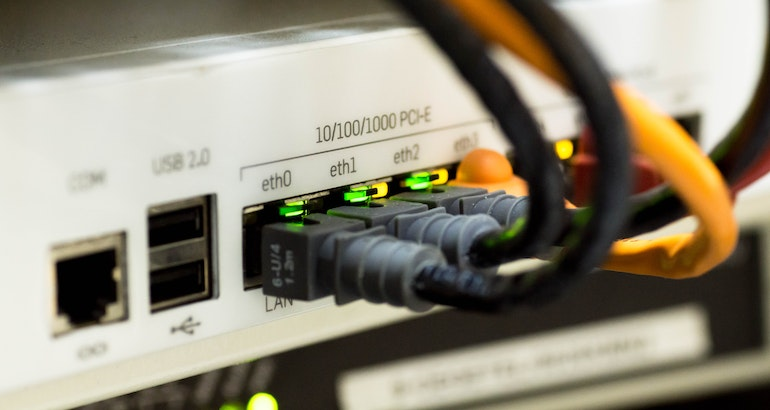Ethernet and Wi-Fi: How to choose?

- Tips





Overview
In the rapidly developing era of the internet, networks have become an integral part of our lives. In daily life and work, we often use two mainstream network connection methods: Ethernet and Wi-Fi . They are both common network connection methods, but they have significant differences.
Ethernet is a local area network transmission protocol. It uses physical cables as a medium to effectively transfer data between computers, making it the preferred solution for enterprise and home networks. Wi-Fi, on the other hand, is a wireless local area network technology standard. Compared to Ethernet, it transmits data through wireless signals, without the need for physical media, thus maximizing flexibility and convenience.
Contents
Differences between Ethernet and Wi-Fi
Differences between Ethernet and Wi-Fi
① Transmission speed
Ethernet typically has faster transmission speeds than Wi-Fi. Ethernet uses physical cables for transmission, resulting in more stable and faster data transfer. Wi-Fi's speed depends on many factors such as signal strength, device quality, etc. Therefore, Ethernet is more suitable for situations that require higher transmission speeds.
② Security
Ethernet is relatively more secure than Wi-Fi. Since Wi-Fi transmits data through wireless signals, it may be vulnerable to hacking attacks and have a higher risk of network data leakage. Ethernet uses physical media to transmit data and generally does not suffer from these attacks.
③ Geographic location limitations
Wi-Fi is limited by geographic location due to its wireless nature. If the distance from the router is too far or there are obstacles blocking the signal, Wi-Fi signals are likely to become unstable or completely disconnected. Ethernet is not subject to these limitations and can achieve data transfer at any time and place.
Reasons for choosing Ethernet
① Higher reliability
Ethernet's transmission method is more stable and faster than Wi-Fi, making it better suited for situations where data transfer is more important. This includes downloading large files, online video conferences, etc.
② Better security
Ethernet's data transmission is based on physical media, making it more difficult to be attacked by hackers. Therefore, many organizations with high security requirements, such as enterprises and financial institutions, use Ethernet for data transmission.
③ Stronger stability
Ethernet is not affected by geographic location or signal strength, maintaining a good connection status at all times and places. This makes Ethernet a reliable network connection method, especially in situations that require long-term online work.
Reasons for choosing Wi-Fi
① Higher flexibility
T he wireless signal transmission method of Wi-Fi allows devices to move to different locations without being limited by wiring. Especially for mobile devices and laptops that need to change positions frequently, Wi-Fi is the ideal choice.
② More suitable for home and small office use
For home users and small offices, Wi-Fi is a more convenient choice. Since it does not require wiring, it can connect various devices at any time, such as laptops, smartphones, tablets, etc., which is very suitable for the network connection needs of some small places.
③ Cost-saving
Compared to Ethernet, Wi-Fi does not require physical equipment such as cables or connectors, so its cost is much lower in terms of device installation and maintenance. It also avoids damage to walls caused by wiring, which does not affect the aesthetics of the building.
④ Easier device connection and management
Wi-Fi is more convenient for connecting devices and managing networks than Ethernet. Users can easily connect new devices through simple settings and can monitor and manage networks more easily.
To sum up, for workplaces that require fast and stable data transmission (such as financial institutions, hospitals, etc.) or environments that require long-term online work (such as scientific research institutions, universities, etc.), Ethernet is the more appropriate choice.
On the other hand, for scenarios where portability and flexibility are needed, such as home users, small offices, and mobile devices, Wi-Fi is the more ideal choice.
When choosing a network connection method that suits one's own needs, it is necessary to make the choice based on one's own demands and scenarios, comprehensively considering factors such as stability, transmission speed, security, cost, and portability.






